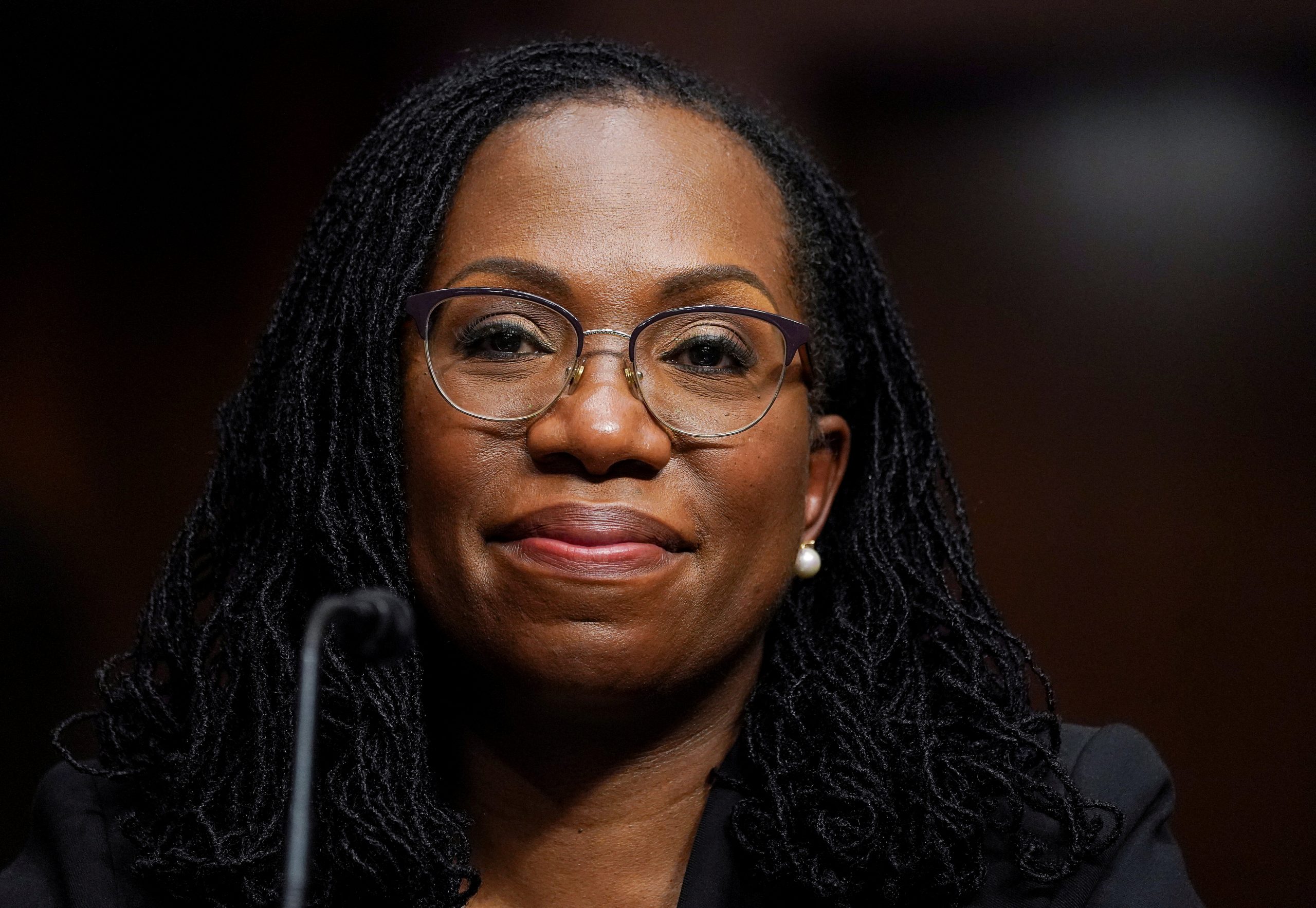
Lauren Moye, FISM News
[elfsight_social_share_buttons id=”1″]
President Joe Biden announced Ketanji Brown Jackson as his nomination to replace retiring Supreme Court Justice Stephen Breyers yesterday. In doing so, he kept a campaign promise to elect the court’s first black female justice and sparking Republican criticism.
“I sought a nominee with the strongest credentials, record, character, and dedication to the rule of law,” President Joe Biden said yesterday after announcing his nominee.
Jackson’s legal background is best summarized by Representative Connor Lamb (D-Penn.), who tweeted that her “stellar credentials already earned her a voice vote confirmation to the district court & a bipartisan vote to serve on the Court of Appeals.” The 51-year-old was appointed to the D.C. Court of Appeals last year after serving in the lower court for eight years.
In addition to her work as a judge, Jackson was also one of Breyer’s Supreme Court clerks. This gives her extensive experience working within the legal system. However, her decision history reflects the radical left. While an appointment to the Supreme Court would do nothing to shift the 6-3 conservative majority currently reflected there, her values often conflict with traditional Christian beliefs.
Most notable among these conflicts is her pro-abortion views. Marjorie Dannenfelser, president of pro-life Susan B. Anthony List, stated yesterday, “Ketanji Brown Jackson is backed by many of America’s most radical pro-abortion groups. She is on record opposing the free speech rights of pro-life advocates pleading to save lives outside abortion centers and supporting the false claim that abortion is ‘healthcare.’”
Dannenfelser referenced Jackson’s 2001 amicus brief in support of a buffer law that prevented pro-life advocates from approaching potential clients of abortion businesses in Massachusetts.
Meanwhile, a New York Times report described her notable cases as including “blocking the Trump administration’s attempts to fast-track deportations, cut short grants for teen pregnancy prevention, and shield a former White House counsel from testifying before Congress about President Donald Trump’s efforts to obstruct the Russia investigation.”
Senator Lindsey Graham expressed dismay over Biden’s choice of Jackson over the other possible nominations and said, “The radical Left has won President Biden over yet again.”
If media reports are accurate, and Judge Jackson has been chosen as the Supreme Court nominee to replace Justice Breyer, it means the radical Left has won President Biden over yet again.
The attacks by the Left on Judge Childs from South Carolina apparently worked.
— Lindsey Graham (@LindseyGrahamSC) February 25, 2022
Graham publicly supported the potential nomination of J. Michelle Childs from the South Carolina federal district. However, Childs drew criticism from progressives primarily over her 2009 sentencing of a man for twelve years of prison time over a marijuana charge.
“I expect a respectful but interesting hearing in the Senate Judiciary Committee,” Graham also tweeted.
In a Fox News opinion piece, Carrie Severino referred to Jackson as a “politician in robes.” Severino wrote, “These Arabella-advised groups seek nothing less than the appointment of politicians in robes who will rubber-stamp their left-wing political agendas from the bench.”
Jackson is also both controversial and notable for her prior experience as a public defender, which would make her unique among Supreme Court justices. However, her experience involves defending Guantanamo Bay detainees. This was a point of contention during her last senate confirmation hearing, where she was asked by Senator John Cornyn (R-Tex.) if she had “ever represented a terrorist.”
This public defender experience makes her popular among liberals, who praise her for providing a voice to a vulnerable population. More centrist members of the Democratic party feel that Jackson should not be a point of contention despite her record.
Democratic Whip Jim Clyburn, who also supported Childs, pushed back against Graham’s criticism at a press conference. He said, “I do not see Judge Brown Jackson as being radical at all. I do not.”
